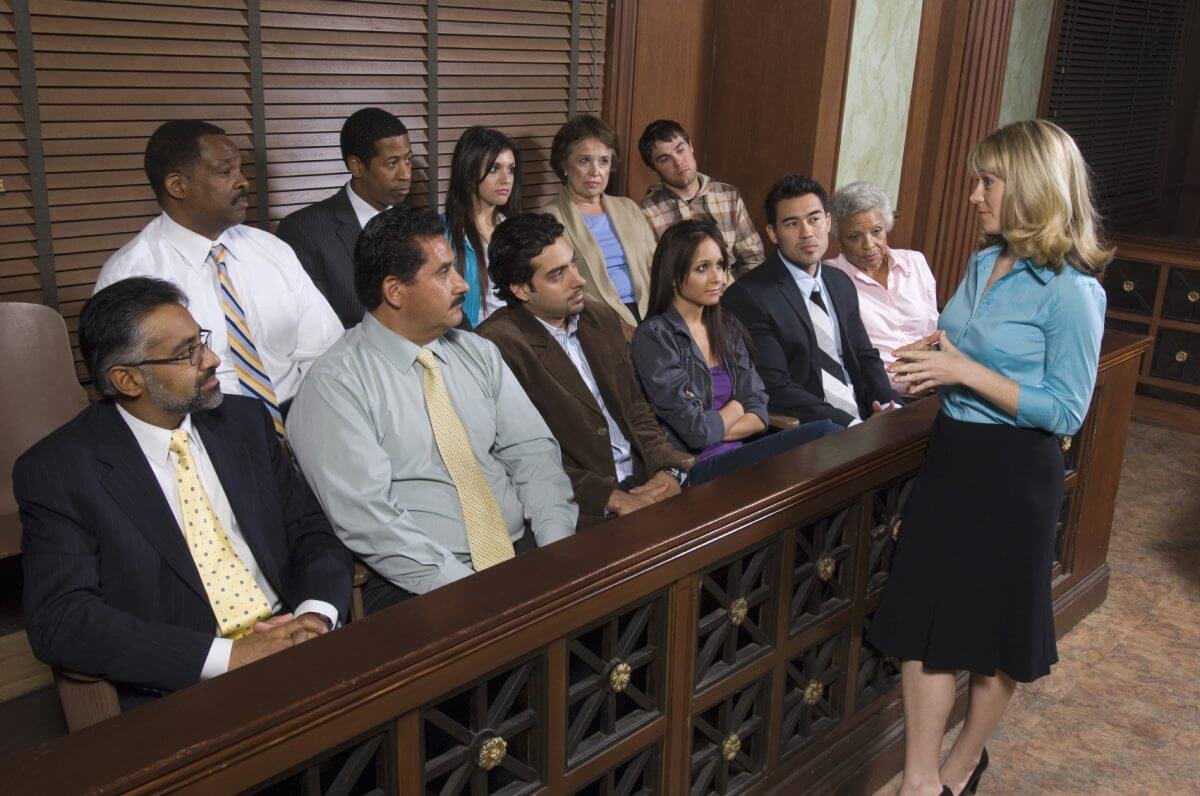Person Most Knowledgeable: Ensuring Accurate and Credible Test

Introduction
In complex legal procedures, the “Person Most Knowledgeable” (PMK) is crucial. The discovery process relies on this classification to verify and trust lawsuit information. Anyone participating in legal issues, especially complicated situations requiring specialist expertise, must understand the PMK, their obligations, and the repercussions of their evidence. This article explains how the PMK protects testimony and promotes fair court proceedings.
The PMK is usually the employee with the highest knowledge of case-related issues. This individual must testify about the organization’s knowledge, practices, and records. The PMK’s selection and preparation are crucial to discovery since their testimony can change the case. Thus, the PMK must be competent and equipped to handle the deposition procedure.
This detailed investigation will cover the origins and growth of the PMK idea, PMK selection criteria, preparation, and the legal ramifications of their testimony. We will also discuss the challenges and possible pitfalls of this job and offer legal teams best practices to ensure that PMK testimony is credible and robust. After reading this essay, readers will grasp the PMK’s value and how their testimony affects the judicial process.
Historical Context and Evolution of the PMK Concept
The Person Most Knowledgeable originated from the necessity for precise and dependable legal knowledge. Historically, documented evidence and witness testimony dominated discovery. As legal matters became more complicated and corporations evolved, it became harder to get exact information from one person. The PMK classification was created to speed discovery by allowing the most knowledgeable employee to testify.
The PMK notion emerged in the mid-20th century when judicial institutions realized traditional discovery procedures were limited. The US Federal Rules of Civil Procedure, specifically Rule 30(b)(6), established the concept of a corporate representative who may speak for an entity. This regulation required organizations to nominate one or more witnesses to testify on topics known or reasonably available to them, establishing the groundwork for the present PMK.
The PMK has grown to meet the increased complexity of organizational structures and the volume of information firms manage throughout the decades. The PMK must now deliver correct testimony and comprehend the legal and procedural components of discovery. This progression emphasises the PMK’s role in ensuring extensive and trustworthy legal evidence.
Criteria for Selecting a PMK
Selecting the proper PMK is crucial to discovery. The chosen person must really know the case’s themes. This selection method uses several crucial factors to guarantee accurate and credible testimony.
First and foremost, the PMK must know the subject well. Knowledge of facts and their context and implications are included. In technical or specialized circumstances, the PMK should have a background in the subject and be able to communicate complicated concepts to non-experts.
The PMK must know the company’s records and processes in addition to subject matter competence. This requires comprehending case documentation and finding and interpreting pertinent documents. The PMK should also be aware of any rules or procedures that may affect the case and any historical background that may affect information interpretation.
Effective PMK communication is another crucial criteria. Both written and spoken testimony must be clear and confident. This involves answering deposition questions correctly and explaining complicated facts to all parties.
Finally, the PMK must manage discovery procedures. They must comprehend their role’s legal obligations and the potential consequences of their evidence. The PMK should understand the need for truthful disclosure and the implications of not doing so.
Preparation of the PMK for Testimony
For accurate and reliable testimony, the PMK must be well-prepared after selection. Key phases in this preparation process give the PMK the knowledge and abilities to give successful evidence.
Case materials must be thoroughly reviewed before creating the PMK. The PMK may need to reference all relevant papers, records, and other material throughout their evidence. The legal team should collaborate with the PMK to fully comprehend the matter and all relevant information.
Along with analyzing case documents, the PMK should get discovery legal and procedural instruction. This training should cover deposition essentials such question kinds and replies. The PMK should also understand the need for truthful and accurate information and the implications of not doing so.
Mock depositions are crucial to preparation. These simulated sessions provide the PMK practice answering questions in a controlled setting and feedback. Mock depositions can assist the PMK get used to the procedure and identify areas for further preparation.
Finally, the legal team and PMK should plan their testimony. It entails selecting essential ideas and topics to stress and potential issues to address. The PMK should confidently and effectively handle these challenges to ensure accurate and reliable testimony.
The Impact of PMK Testimony in Legal Proceedings
PMK testimony can be crucial to judicial processes. Since the PMK is the company’s official representative, their words can impact how judges, juries, and opposing counsel see the case.
PMK testimony can help cases by clarifying difficult problems. The PMK can explain technical or specialist issues to non-experts due to their in-depth understanding. In circumstances with extensive intricacies or highly specialized knowledge, a concise and precise explanation can relieve confusion and resolve conflicts.
PMK testimony can clarify and reinforce the organization’s stance. The organization may demonstrate openness and responsibility by providing a well-prepared and competent representative. This can boost the organization’s credibility and arguments, possibly winning the lawsuit.
The PMK’s testimony can also identify and remedy the organization’s case flaws. The legal team and PMK can detect possible issues and devise solutions during preparation. This proactive strategy can reduce vulnerabilities and improve the argument.
However, improperly handling the PMK’s testimony might have harmful effects. The PMK and organization might lose trust due to inaccurate information, testimony contradictions, or lack of preparedness. This might result in adverse decisions or settlements.
Challenges and Pitfalls in the PMK Role
The PMK is essential to guaranteeing accurate and convincing testimony, but it has its drawbacks. Legal teams and companies must understand and address these issues.
Information overload is a major PMK problem. Modern businesses are complicated and generate a lot of data, so the PMK may need to go through a lot of material to prepare for testimony. The PMK may not know everything about the company or situation, making this difficult. To overcome this difficulty, information management must be methodical and the PMK supported and resourced.
Conflicting testimony is another typical mistake. Many legal issues are complicated, thus different components can be perceived or portrayed differently. Inconsistencies in the PMK’s testimony might damage their credibility and the organization’s. To reduce this risk, the PMK must grasp the case and perform mock depositions to find and fix discrepancies.
Personal bias is possible in PMK roles. As an organization representative, the PMK may have a stake in the case, which may impact their evidence. The PMK will naturally defend their organization, but they must be neutral and truthful. This involves thorough planning, training, and legal team communication and assistance.
Conclusion
Legal processes, business investigations, and other situations demanding authoritative testimony depend on the Person Most Knowledgeable (PMK). By designating a PMK, organizations assure accurate and complete information, which is crucial for investigative or judicial integrity.
A good PMK knows the subject thoroughly and can communicate it well under pressure. This person’s testimony can greatly impact legal battles, regulatory compliance inquiries, and internal audits. Thus, firms must spend time and effort finding and training the ideal candidate.
PMK certification emphasizes the need of proper documentation and knowledge management in a business. Companies can better handle inquiries and legal issues by keeping thorough records and training critical staff. This proactive strategy reduces risks and boosts the company’s trust.
FAQs
What is a Person Most Knowledgeable (PMK)?
An organisation designates a Person Most Knowledgeable (PMK) to give expert testimony in judicial processes, investigations, and other official inquiries. The PMK should know the themes well and explain them.
How is a PMK selected?
PMKs are chosen for their subject area competence. The most knowledgeable and accurate representative of an organization’s expertise and procedures is usually chosen.
What are the responsibilities of a PMK?
PMKs must grasp their testimony topic, provide correct and full information, and communicate this knowledge throughout legal procedures, depositions, and investigations. Answering extensive questions and providing documents may be required.
How should a PMK prepare for testimony?
Subject-related documents, data, and records should be reviewed by a PMK. They should also get legal procedural and question-answering training. Prepare by studying the subject’s technical features and the legal ramifications of their evidence.
Can there be more than one PMK in an organization?
An organization can appoint many PMKs with diverse skills. This guarantees that the business can give accurate and complete information on numerous themes during legal or investigative processes.
What happens if a PMK is unavailable?
If the PMK is absent, the company must choose a knowledgeable replacement. Also, this substitute PMK must be ready to testify accurately.










